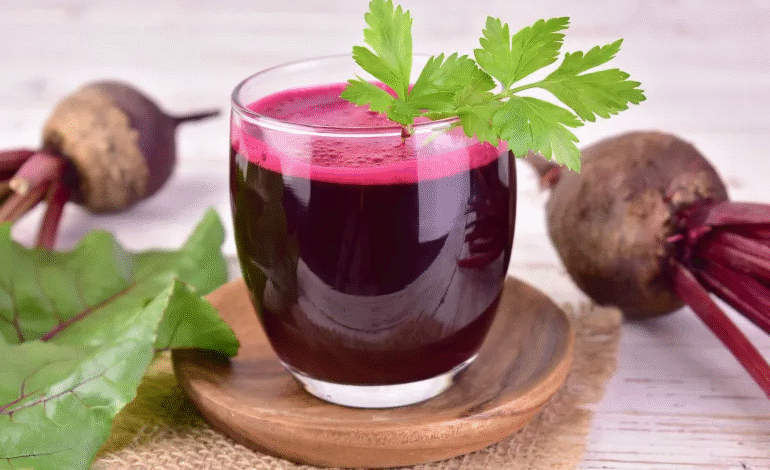Beetroot Juice Lowers Blood Pressure in Older Adults Through Oral Microbiome Changes

Researchers in the largest study of its kind have found that nitrate-rich beetroot juice helps reduce blood pressure in older adults by inducing specific changes in their oral microbiome.
Oral Microbiome and Its Health Role
The oral microbiome is a complex community of microorganisms, including bacteria, fungi, and viruses, that naturally reside in the mouth, covering areas such as the teeth, gums, tongue, and cheeks. It serves as the first line of defense against harmful microbes entering the body through the oral cavity.
Study and Findings
The study was conducted by researchers at the University of Exeter in the United Kingdom and published on July 3 in Free Radical Biology and Medicine, with coverage by EurekAlert.
Results showed that older adults who consumed a concentrated dose of beetroot juice twice daily for two weeks experienced a significant reduction in blood pressure—a change not observed in younger participants. The findings suggest that this effect may be linked to suppression of potentially harmful oral bacteria, as an imbalance between beneficial and harmful oral bacteria can reduce the conversion of dietary nitrates into nitric oxide, a compound essential for vascular health and blood pressure regulation.
Benefits of Dietary Nitrates
Nitrates, naturally present in vegetables, are vital for cardiovascular health. Professor Annie van Hattem, the study’s lead author, noted that older adults produce less nitric oxide as they age, which contributes to higher blood pressure and increased risk of cardiovascular complications such as heart attacks and strokes. She added that encouraging older adults to consume more nitrate-rich vegetables—such as beetroot, spinach, rocket, fennel, celery, and cabbage—could provide long-term health benefits.
Study Methodology
The study included 39 adults under 30 years old and 36 adults in their 60s and 70s, conducted at the clinical research facility of the National Institute for Health Research in Exeter.
Each group consumed nitrate-rich beetroot juice for two weeks and a placebo nitrate-free juice for another two weeks. Bacterial gene sequencing was used to analyze the oral microbiome before and after each intervention. Both groups showed significant changes in oral microbiome composition, but the effects differed by age group.
Specific Results in Older Adults
Older participants exhibited a notable decrease in Prevotella bacteria and an increase in beneficial bacteria such as Neisseria. Their average blood pressure decreased after consuming the nitrate-rich beetroot juice, while no change was observed after the placebo.
Professor Andy Jones, co-author of the study, stated that nitrate-rich foods “alter the oral microbiome in ways that may reduce inflammation and lower blood pressure in older adults, paving the way for larger studies to explore how lifestyle factors and biological sex influence responses to dietary nitrate supplementation.”








